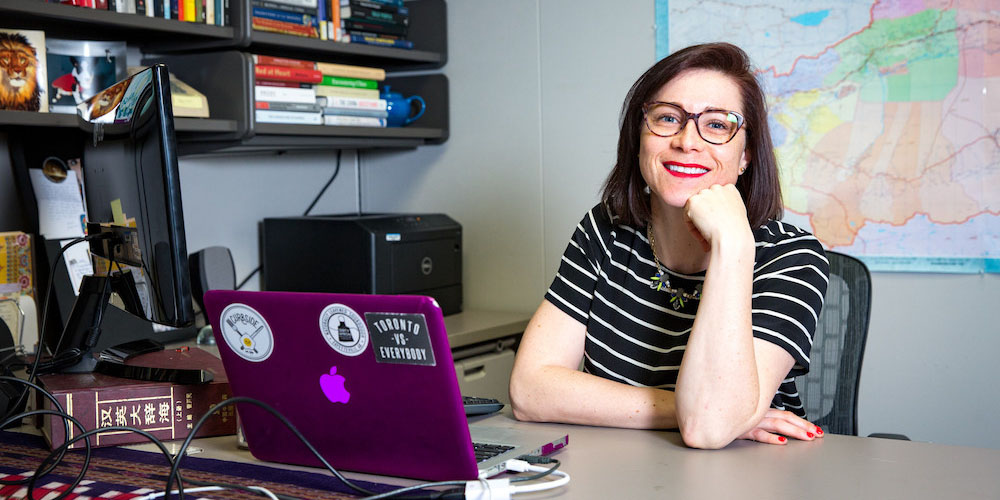Kelly Hammond studies Muslims in China. While China and its Muslim population might seem a world away, Kelly Hammond, assistant professor in the Department of History, believes it is important for the US to know more about one of our largest trading partners. “It’s a massive player in world politics,” she says. “Also a lot of business is done there, and they have a big soft-power arm.” Hammond first became interested in Chinese Muslims when she was an undergraduate student studying history and political science at Bishop’s University in Québec. She had moved to China to study and teach English. There, she lived nearby to a mosque and realized that she’d never thought about there being Muslims in China. So she began studying the history of Muslims in China on her own. Though there are about 45 million of them, that’s a very small percentage of China’s population. So studying the history of that population is a very niche, “a field within a field,” as she says. Later, after she finished earning her Master’s in East Asian history, she went back to China for another year before starting work on her PhD at Georgetown University. This time she moved to the far western part of the country, where most of China’s Muslims live. Like the other populations who live on China’s borderlands, like Mongolians or Tibetans, “they have always lived in that liminal space between large empires,” she says, “so it gives a different perspective [on China] than those who study the heartland.” However, these minorities may now have a big role to play for China. There is a recent westward re-pivot in China’s foreign policy, Hammond says, as China seeks to re-create the Silk Road in its “One Road, One Belt” policy. And this gives China’s Muslims strategic value; first, geographically, as China’s West borders Kazakhstan, Kyrgyzstan, Tajikistan, Afghanistan and Pakistan – all majority-Muslim countries. And that gives them a role to play culturally as well – they have the “cultural capital” to interact with Muslims around the world, which can enable China to make deals with majority-Muslim nations in a way the US can’t. “I don’t think people realize China is essentially a neo-imperial state,” she says, citing China’s political and economic influence over Pakistan, Greece and places in Africa. “I still feel the world power center is in the North Atlantic, but China is definitely trying to undermine that.”
This past winter Hammond was awarded a Kluge fellowship, which allowed her to do research for several articles in the Library of Congress in Washington, D.C. You can read more about her experiences and research here. More recently, she was appointed to the two-year Public Intellectuals Program by the National Committee on US-China Relations. The program recognizes outstanding members of the next generation of American China specialists in the academic, professional, or policymaking spheres who have the interest and potential to influence relevant foreign policy and public education. You can read more about it here.
Edited on March 12, 2019.




